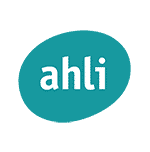Over the past two centuries, the world has witnessed a larger volume of abundance in terms of global income, longer lifespan, food supply, energy sources, means of transportation, and communication networks. Based on Moore’s law, we have seen an exponential growth in advancement of technological capabilities. We are living in the 5th generation of technology, with Cloud computing, Sensor and Network, Robotics, 3D printing, Synthetic biology, Nano- materials and Artificial Intelligence.
However, in an age of growing abundance, the world feels unhinged and moving in the wrong direction. We still witness political unrest, social upheaval, famine, and income inequality. These lead to growing economic uncertainty and the ecological environmental collapse. The increasing rate of change countered by the decreasing income equality results in a high rate of social inequality.
It is commonly accepted that businesses need to engage their resources to increase profit to maximize shareholder value. This belief leads to business strategies that further increase social inequality, economic uncertainty and environmental collapse. In the words of Michael Porter, “Business profit allows whatever social solution we have created to be infinitely scalable… and self-sustaining” We believe that in order to address these global challenges, businesses need to focus on maximizing shared value.
As such, in 2017, Jordan Ahli Bank established the Shared Prosperity Organization (SPO) framework as one of its key strategic pillars in 2017. Shared Prosperity in the banking industry is when everyone contributes to and benefits from economic, social and environmental value creation and meaningful progress toward social equity, access to knowledge opportunity and economic growth. We refer to this as “conscious capitalism”.
The SPO framework ensures shared value is received and contributed amongst eight key stakeholders; Employees, Clients, Suppliers & Partners, Shareholders, Industry, Regulators, Citizens and the Environment. We mapped a human centric journey for each stakeholder allowing us to design a shared value contributing and receiving model.
It is our firm belief that the SPO framework is a globally relevant model that can be adopted by all businesses to achieve maximum shared value creation.
From shared prosperity to corporate governance
Over the past two centuries, the world has witnessed a larger volume of abundance in terms of global income, longer lifespan, food supply, energy sources, means of transportation, and communication networks. Based on Moore’s law, we have seen an exponential growth in advancement of technological capabilities. We are living in the 5th generation of technology, with Cloud computing, Sensor and Network, Robotics, 3D printing, Synthetic biology, Nano- materials and Artificial Intelligence.
However, in an age of growing abundance, the world feels unhinged and moving in the wrong direction. We still witness political unrest, social upheaval, famine, and income inequality. These lead to growing economic uncertainty and the ecological environmental collapse. The increasing rate of change countered by the decreasing income equality results in a high rate of social inequality.
It is commonly accepted that businesses need to engage their resources to increase profit to maximize shareholder value. This belief leads to business strategies that further increase social inequality, economic uncertainty and environmental collapse. In the words of Michael Porter, “Business profit allows whatever social solution we have created to be infinitely scalable… and self-sustaining” We believe that in order to address these global challenges, businesses need to focus on maximizing shared value.
As such, in 2017, Jordan Ahli Bank established the Shared Prosperity Organization (SPO) framework as one of its key strategic pillars in 2017. Shared Prosperity in the banking industry is when everyone contributes to and benefits from economic, social and environmental value creation and meaningful progress toward social equity, access to knowledge opportunity and economic growth. We refer to this as “conscious capitalism”.
The SPO framework ensures shared value is received and contributed amongst eight key stakeholders; Employees, Clients, Suppliers & Partners, Shareholders, Industry, Regulators, Citizens and the Environment. We mapped a human centric journey for each stakeholder allowing us to design a shared value contributing and receiving model
It is our firm belief that the SPO framework is a globally relevant model that can be adopted by all businesses to achieve maximum shared value creation.
From shared prosperity to corporate governance
We are always a phone call away, we can answer all your questions 065007777

Personal:
Exclusive:
Financial Institutions Department
Ahli777
Sustainability and ESG Strategy and Framework
Environmental and Social Responsibility
Support & Sponsorship Requests
Working Hours
Qawn
Ahli Invest
Apple Pay
You can contact us through our direct call center 065007777 around the clock (24/7).

Jordan Ahli Bank is a member of the Deposit Insurance Corporation
SME Green Bundle
Finance your green needs program
Working Hours:
All our main branches
Sunday-Thursday:
From 8:30 AM to 3:00 PM
City Mall, Mecca Mall, Taj Lifestyle, Arabella Mall, and Souq Bab al Madina branches
Saturday-Thursday:
From 10:00 AM to 10:00 PM
Lunch Break: 3:00 PM – 4:00 PM
Friday:
From 2:00 PM to 10:00 PM
 Jordan Ahli Bank is a member of the Deposit Insurance Corporation
Jordan Ahli Bank is a member of the Deposit Insurance Corporation